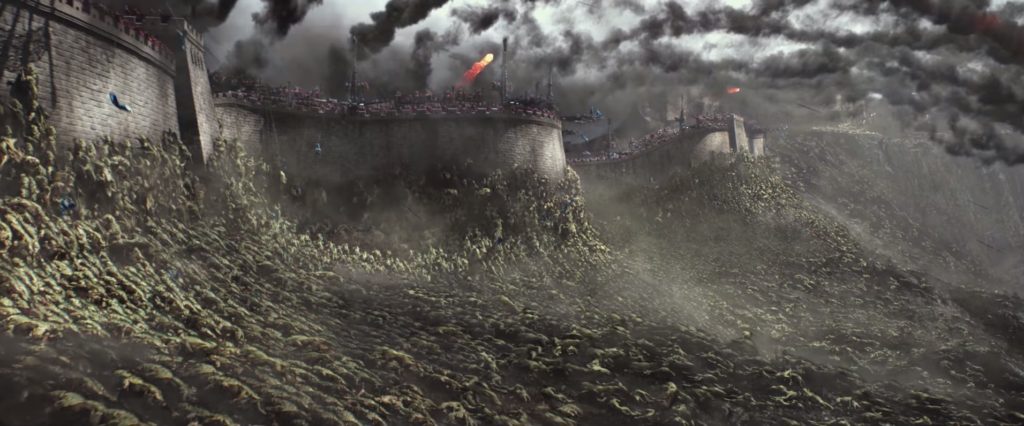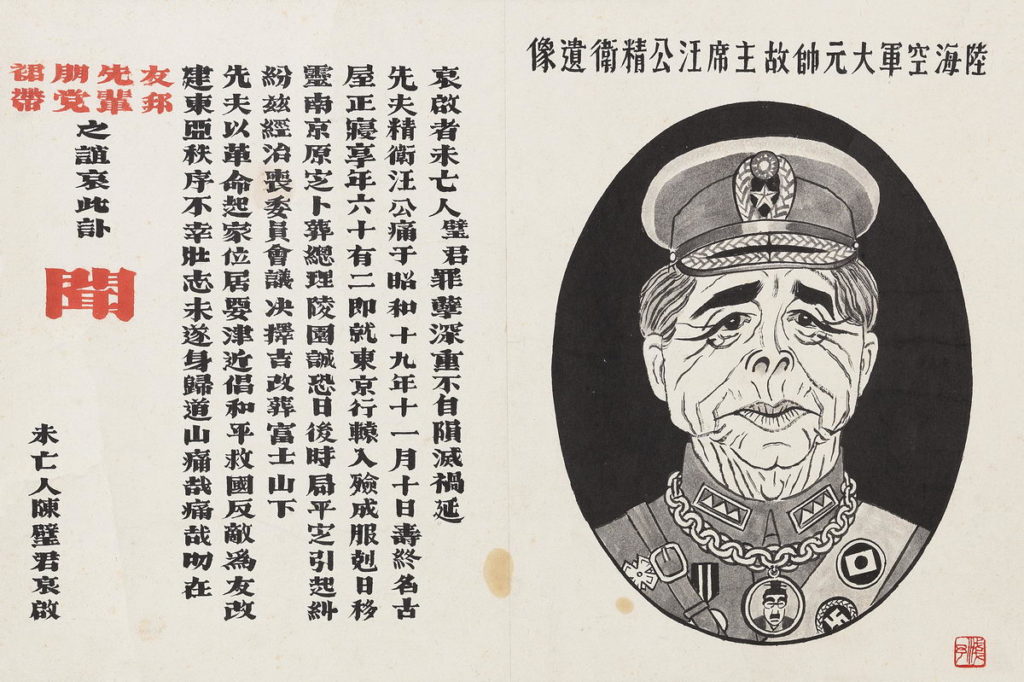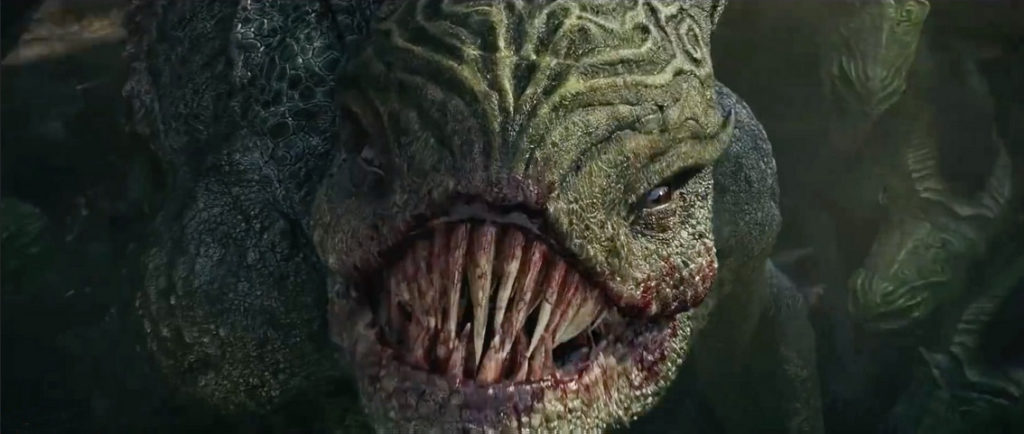The following is based on a lecture on Chinese comics which I had the pleasure of presenting to the Asian Art and Visual Culture working group at the Townsend Center for Humanities at UC Berkeley on February 3, 2017, at the invitation of Hannibal Taubes and Weihong Bao. I’ve edited the original text slightly to reflect the comments I received before and after my presentation.
So, starting off, I’d like first thank the Asian Art and Visual Culture working group, and Hannibal Taubes and Professor Weihong Bao for inviting me to be here today, and Andrew Jones for taking the time to meet with me before this talk. It’s really an honor for me to be able to be here to not only share my research, but also have the opportunity to learn more about the projects you guys are all working on in your own fields. It’s always amazing to me to see the ways people studying things I had no idea about can inspire me to think about my own work in different ways.
I’d also like to take a moment to acknowledge the Chochenyo band (today Muwekma) of the Ohlone People on whose ancestral and unceded territory we are holding this event today.
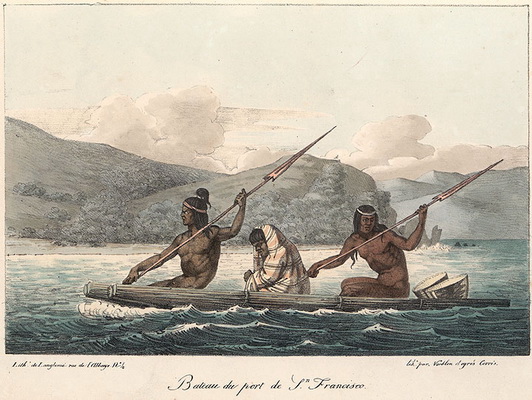
Just now, Professor Jones and I were talking about this, and I said, “I know it seems a little hokey…” But Professor Jones, to his credit, said that he didn’t think it was hokey at all. And then he told me a story, one that I hadn’t heard before.
Just to preface, I’m from Portland, so we were talking about Ursula K. Le Guin, who has lived in Portland for most of her adult life with her husband, Charles Le Guin, a historian who taught at Portland State University (my alma mater).
What I didn’t know about Ursula K. Le Guin, is that she was originally from Berkeley, and her father, Alfred Kroeber, taught at the university. (That’s where the K in her name comes from.) Kroeber was an anthropologist, one the earliest students of Franz Boas at Columbia, and Le Guin’s mother, Theodora Kroeber, was also an anthropologist, having written Ishi in Two Worlds: a biography of the last wild Indian in North America in 1961. Ishi was said to be the last surviving member of the Yahi tribe, of the Yana people from Northern California, and he just appeared all of a sudden in 1911, after most of his tribe had been killed in the Three Knolls Massacre of 1865. The part of this story that I think is really relevant to my talk today, is that in her book, Theodora Kroeber describes how Ishi never actually told anyone his true name–just like Ged and the wizards in a Tale of Earthsea.
So we have these threads, the power of names, and the way ideas and traditions move through generations.
I’m going to try and avoid talking about politics here, because I know—or at least I think if you’re here for this talk today, it’s probably at least in part because you want to think about something else for a little while. But avoiding politics is itself political, and we are at Berkeley, which is in the national news for the protests here just two nights ago, for protests which ended in the university cancelling a talk by the white supremacist / internet troll Milo Yiannopoulos.
I would like to say that even though things look pretty dire right now, the struggle for equality and freedom from oppression is something that’s been ongoing for a long time now. I’d like to think that his Orangeness in Chief, and Brexit, and the crackdown on NGOs and lawyers and free speech in China…I’d like to think all of those things are just temporary setbacks.
I do think the tide of history is against them, in the same way that the First Nations peoples of North America, and indigenous peoples around the world are finally starting to gain some recognition for the injustices that were done to them in the past, and new policies are being put into place to address the ongoing legacies of those injustices.
And I want to thank the community here at Berkeley for standing up to the people who would have us the go the other direction, by having us betray the fundamental values of American democracy.
Okay! So, now, on the really pressing matter of the day: Chinese comics!
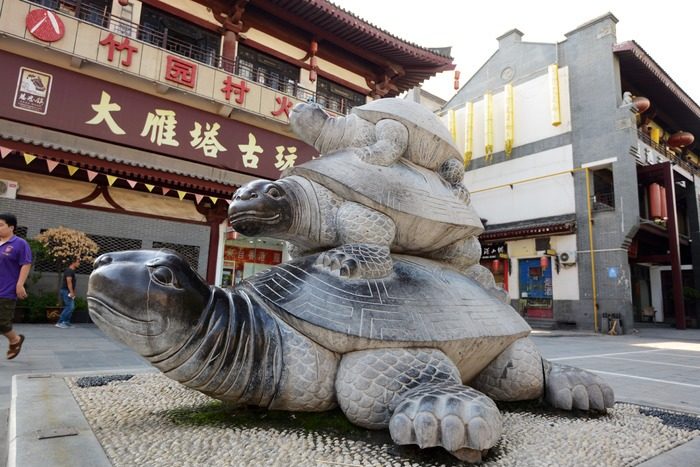 Statue of three stacked turtles in a public square in front of a curios shop.
Statue of three stacked turtles in a public square in front of a curios shop.
So, the title of this talk is ‘Turtles All the Way Down’ and I guess that’s a little confusing for some people, because what do turtles have to do with China or comics?
Continue reading →
